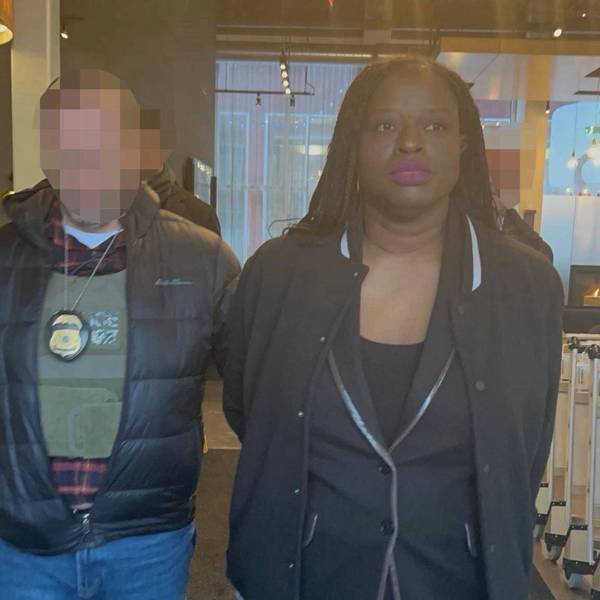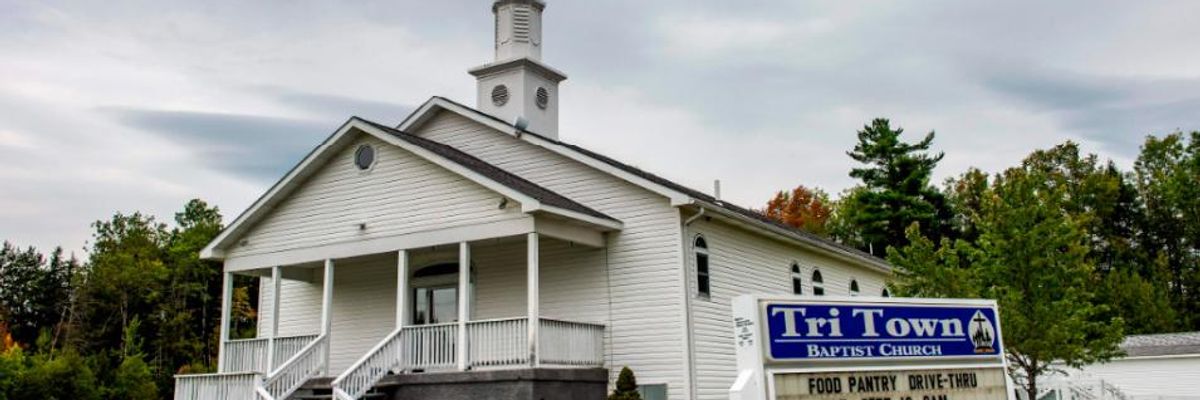Public health experts and other critics warned that a U.S. Supreme Court ruling handed down late Wednesday night will lead to more coronavirus outbreaks and superspreader events, as the court decided that New York state cannot place limits on religious gatherings to mitigate the spread of Covid-19.
"The court's decision to put religious rights above all else, including public health, in the worst month of the worst health crisis of our lifetime is outrageous and dangerous," wrote Jodi Hicks, president of Planned Parenthood Affiliates of California, on Twitter.
In the 5-4 decision, Chief Justice John Roberts sided with the three more liberal justices, as he has in previous cases this year in which religious organizations in California and Nevada claimed that restrictions on their gatherings were a violation of religious liberty. The case was the first in which Justice Amy Coney Barrett's presence on the court was a deciding factor; in the previous rulings, the late Justice Ruth Bader Ginsburg was part of the majority which decided restrictions on the gatherings should stand to protect public health.
"Justice Gorsuch does not even try to square his examples with the conditions medical experts tell us facilitate the spread of Covid-19: large groups of people gathering, speaking, and singing in close proximity indoors for extended periods of time."
--Justice Sonia Sotomayor
The case involved New York Gov. Andrew Cuomo's restrictions, which hold that in areas designated "red zones" for coronavirus spread, no more than 10 people may attend a religious service, and that in "orange zones" no more than 25 people can attend. The state's color-coded zones have shifted as outbreaks are mitigated and the virus spreads to different areas.
Justice Neil Gorsuch wrote the majority opinion, claiming that Cuomo's restrictions violate the First Amendment right to free exercise of religious beliefs. In the opinion, Gorsuch claimed Cuomo unfairly favored secular activities such as shopping, because various stores in red and orange zones have not been subject to the same restrictions as churches, synagogues, mosques, and other places of worship.
"The governor has chosen to impose no capacity restrictions on certain businesses he considers 'essential,'" wrote Gorsuch. "According to the governor, it may be unsafe to go to church, but it is always fine to pick up another bottle of wine, shop for a new bike, or spend the afternoon exploring your distal points and meridians. Who knew public health would so perfectly align with secular convenience?"
As New York State Solicitor General Barbara Underwood noted in a letter to the Supreme Court, events and venues which typically invite large gatherings have not been given any preferential treatment in red and orange zones.
Religious services "tend to involve large numbers of people from different households arriving simultaneously; congregating as an audience for an extended period of time to talk, sing, or chant; and then leaving simultaneously--as well as the possibility that participants will mingle in close proximity throughout," Underwood wrote. "Among other things, in both red and orange zones, casinos, bowling alleys, arcades, movie theaters, and fitness centers are closed completely."
Justice Sonia Sotomayor wrote the dissent in the case, suggesting Gorsuch was disingenuous in expressing concern that Cuomo's restrictions unfairly target religious gatherings.
"Justice Gorsuch does not even try to square his examples with the conditions medical experts tell us facilitate the spread of Covid-19: large groups of people gathering, speaking, and singing in close proximity indoors for extended periods of time," Sotomayor wrote. "Unlike religious services, which 'have every one of those risk factors'...bike repair shops and liquor stores do not feature customers gathering inside to sing and speak together for an hour or more at a time."
Critics on social media also pointed out the error in Gorsuch's reasoning.
"You'd have to be deliberately distorting it to miss the point this badly," tweeted historian Kevin Kruse. "That's the Trump Court, I guess. His legacy is marching on."
A number of coronavirus outbreaks have been linked to religious gatherings. In October, officials in Michigan reported that 5% of the state's outbreaks were tied to religious services where large groups gathered indoors. Churches in Maine have been linked to at least two outbreaks, and this month officials in North Carolina have connected at least 213 Covid-19 cases and 12 deaths to religious gatherings.
The Supreme Court's Wednesday ruling signals that "people can gather without restriction, despite us asking, 'please just keep it small,'" tweeted New York-based physician Dr. Dara Kass.
"Free religious exercise is one of our most treasured and jealously guarded constitutional rights," Sotomayor wrote in her dissent. "States may not discriminate against religious institutions, even when faced with a crisis as deadly as this one. But those principles are not at stake today."




